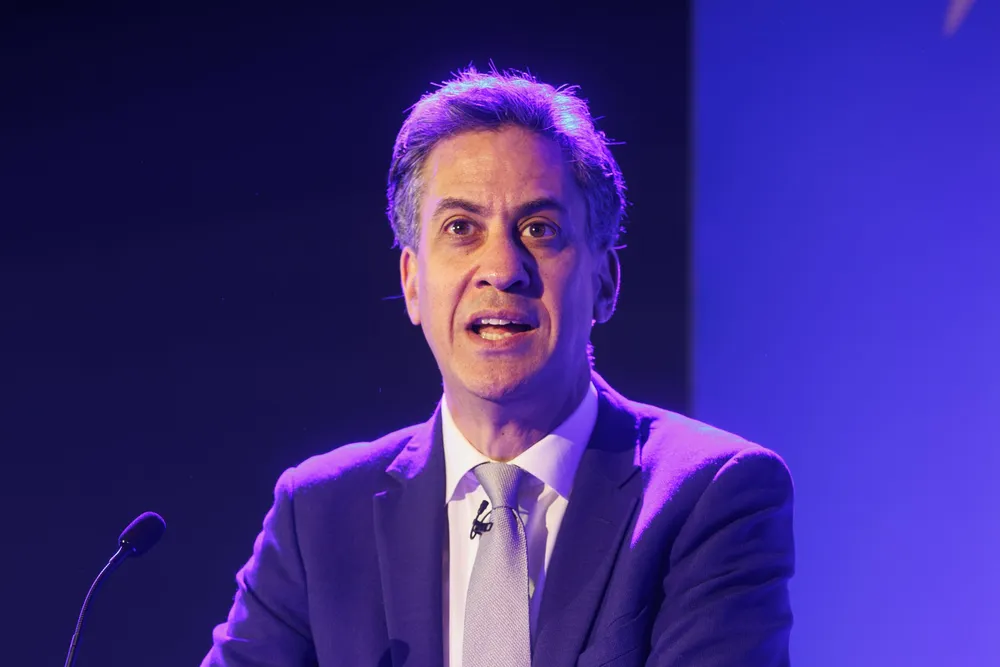UK snubs $33bn cable plan to pump wind power from Morocco
Ambitious plan won 'nationally significant infrastructure recognition', but CfD funding pots are getting squeezed

The UK government has decided not to support a £24bn ($33bn) project that aims to import vast amounts of solar and wind power from Morocco, and will instead prioritise domestic renewables when it comes to providing subsidised price guarantees.
Xlinks, the consortium behind the giant UK-Morocco project, had been waiting almost two years for a decision from the UK government on a mooted 25-year Contract for Difference (CfD) power deal for its project but the answer, when it came, was a negative.
The project, as designed, would connect more than 11GW of solar and wind capacity in Morocco to the UK via a 4,000km, 3.6GW high-voltage direct current (HVDC) subsea cable.
Backers say the UK-Morocco plan could provide enough clean electricity to meet more than 9% of the UK’s total electricity demand.
Preliminary discussions about CfD support with the Department for Energy Security and Net Zero (DESNZ) seemed to be moving forward, particularly after the project — which includes plans for two UK converter stations — won UK status as a nationally significant infrastructure in 2023.
The consortium raised £100m for early development funding and has been brimming with confidence since testing market appetite for a plan to raise between £22bn and £24bn through a mixture of debt and equity.
While Xlinks had also been looking at prospects for a wholly private contracting route for the original UK-Morocco project, the consortium has acknowledged that underpinning the project with a CfD would help reduce risks and therefore lower its financing costs.
Xlinks chair Dave Lewis commented that the comany was "hugely surprised and bitterly disappointed that the UK government would choose to walk away from an opportunity to unlock the substantial value that a large-scale renewable energy project like this would bring".
“The project requires no upfront Government investment and offered a highly competitive CfD strike price. It would reduce wholesale electricity prices by over 9% in its first year; bring in £20bn of socioeconomic value, including a £5bn injection into the UK’s green industries; provide 8% of the UK’s electricity needs at a time when demand is rocketing; cut power sector CO2 emissions by about10% in its first year; and increase energy security through increased diversity of supply and reduced reliance on imported gas," he declared.
“Ultimately, we have no choice but to accept DESNZ’s decision. We are now working to unlock the potential of the project and maximise its value for all parties in a different way."
Nuclear pivot
Against this backdrop, the government announced today (Thursday) that its own "thorough assessment" of the project has led to the conclusion that it presents "a high level of inherent risk... to billpayers and taxpayers... related to both delivery and security".
"We firmly believe that domestic alternatives can see greater economic benefits whether that be through jobs, supply chains and energy security," DESNZ said in its statement.
In a parliamentary statement, deputy energy minister Michael Shanks said the decision was taken after a team of DESNZ officials engaged with Xlinks "to understand the details of the proposal and consider how far the project could support the government’s strategic objectives and risks which could impact successful delivery of it".
The conclusion that it was not sufficiently in the UK's national interest to consider CfD support was based on the conclusion that the project "does not clearly align strategically with the government’s mission to build homegrown power and also on a consideration of risks which could impact the successful delivery of it".
"This would be a first of a kind mega project which has a high level of inherent, cumulative risk (delivery, operational, and security). We acknowledge the excellent work of Xlinks on trying to mitigate these risks where possible but nevertheless, this remains a factor in decision-making," Shanks said.
Security fears?
It was not made clear the extent to which risk perceptions related to the physical security of subsea sea cables.
Anchor damage that has been inflicted on numerous cables in European waters in recent years, possibly intentionally.
In past comments on this matter, Xlinks has outlined plans to bury two separate bipole HVDC cable systems on the seabed and at sufficient depths to provide protection against anchor damage. The company has stated that the risk of damage from anchor dragging would be fully mitigated.
Diplomatic relations
The decision is also likely to be a disappointment to Morocco's own ambitions of becoming a major supplier of clean energy to Europe.
UK investments in Morocco appeared to get a fillip last month when the UK shifted its dipomatic position over the Western Sahara and endorsed a Moroccan "autonomy plan" for the sparsely populated but disputed territory.
The UK also signed new trade agreements and flagged opportunities for its companies in several sectors, including renewables, but Xlinks' hopes that this might augur well for opening CfD negotiations have been swiftly dashed.
In its statement, the UK government was still at pains to emphasise the rising importance of Morocco to its energy plans.
"The (UK) believes Morocco to be an attractive and innovative investment destination and is a key strategic partner... in the areas of clean energy, decarbonisation, and tackling climate change.
"UK companies, supported by the UK government, are looking to increase their investment in the Kingdom. The government’s decision regarding the Xlinks Morocco-UK Power Project is not, nor is it indicative of, a reflection or judgement upon the Kingdom of Morocco as either a strategic partner or as a place to do business by the United Kingdom," it stated.